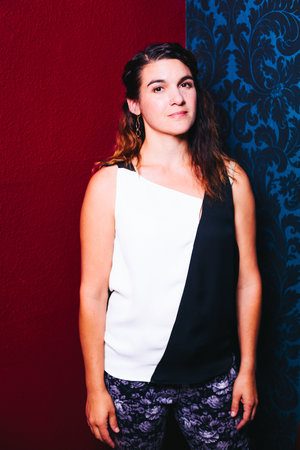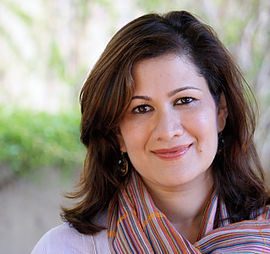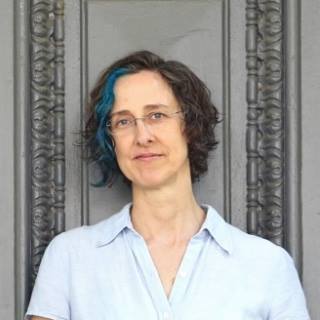An excerpt from an interview with Dilruba Ahmed (poetry, ’09), conducted by Angela Narciso Torres (poetry, ’09), and published at NER:
NER poet Dilruba Ahmed (“Underground,” NER39.2) talks with Editorial Panel member Angela Narciso Torres about public acts of resistance and private acts of opposition, the music and mystery of her own mother’s poetry, and the wonder of a new collaboration with an old friend.
Angela Narciso Torres: Like many of the poems in your poetry collection, Dhaka Dust, “Underground” addresses contemporary social issues while also being deeply rooted in history. Can you talk more specifically about the origins and the historical/societal context that gave rise to this poem?
Dilruba Ahmed: The word “resistance” has been on my mind recently: what does it mean to engage in very public acts of resistance, such as protests and marches, as well as more subtle or even private acts of opposition? Part of the lesser-known history of the South Asian immigrant community here in the US, for example, includes families organizing fundraisers together to support Bangladesh’s war for independence. Women prepared pounds and pounds of “chana chur” (a spicy and savory snack) in Philadelphia and the tri-state area to sell at a large gathering in Washington, DC, and then sent the proceeds back home. I’m interested in the ways that—particularly during difficult times—a seemingly small act can contribute to a greater purpose. And how those acts, even when they occur in relative isolation, can bind people together toward a common goal.
On a more public level, I only recently learned of my aunts’ participation in anti-government rallies in the ’50s, during a time of Pakistani rule in present-day Bangladesh. Crowds of women involved in the Bengali language movement shouted in the streets, wearing black saris—with even my mother (just a child at that time) swept along in the tide of vocal resistors.
In this particular poem, I was thinking of the various forms of private and public resistance by women under Taliban rule in Afghanistan, and the risks involved. I was interested in conveying the notion of resistance as not only fighting back, but also finding ways to thrive under very difficult circumstances.
When I consider the incredible resurgence of civic engagement of the last two years here in the US, I find it very humbling to dwell on the lives of women in situations like this. Doing so certainly lends some perspective to the present challenge of organizing and/or participating in protests and other calls to action, engaging lawmakers, placing phone calls, etc. in the midst of the demands of work and family, but still within an existence (for many of us) of relative privilege, comfort, and/or freedom. […continue reading here]











